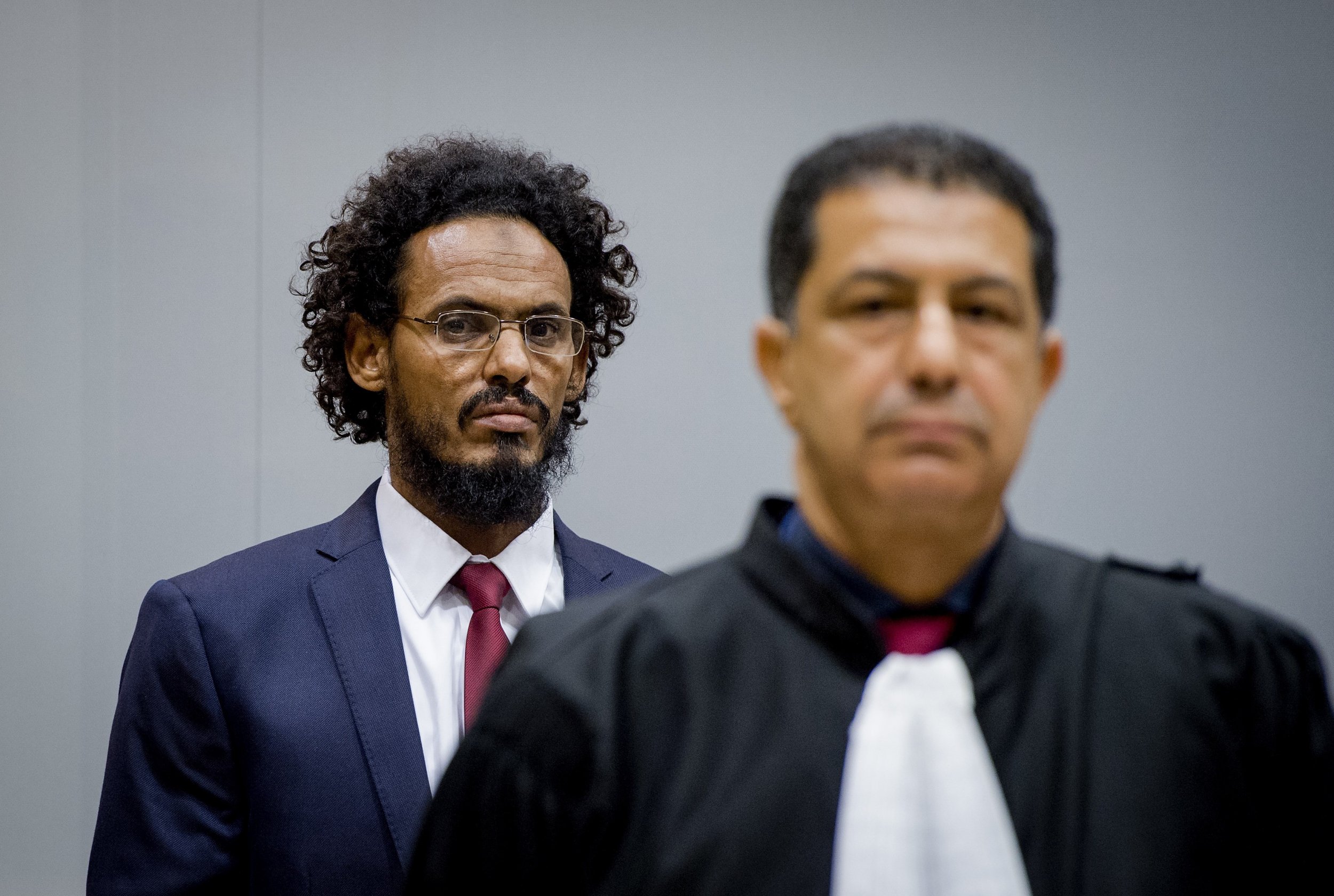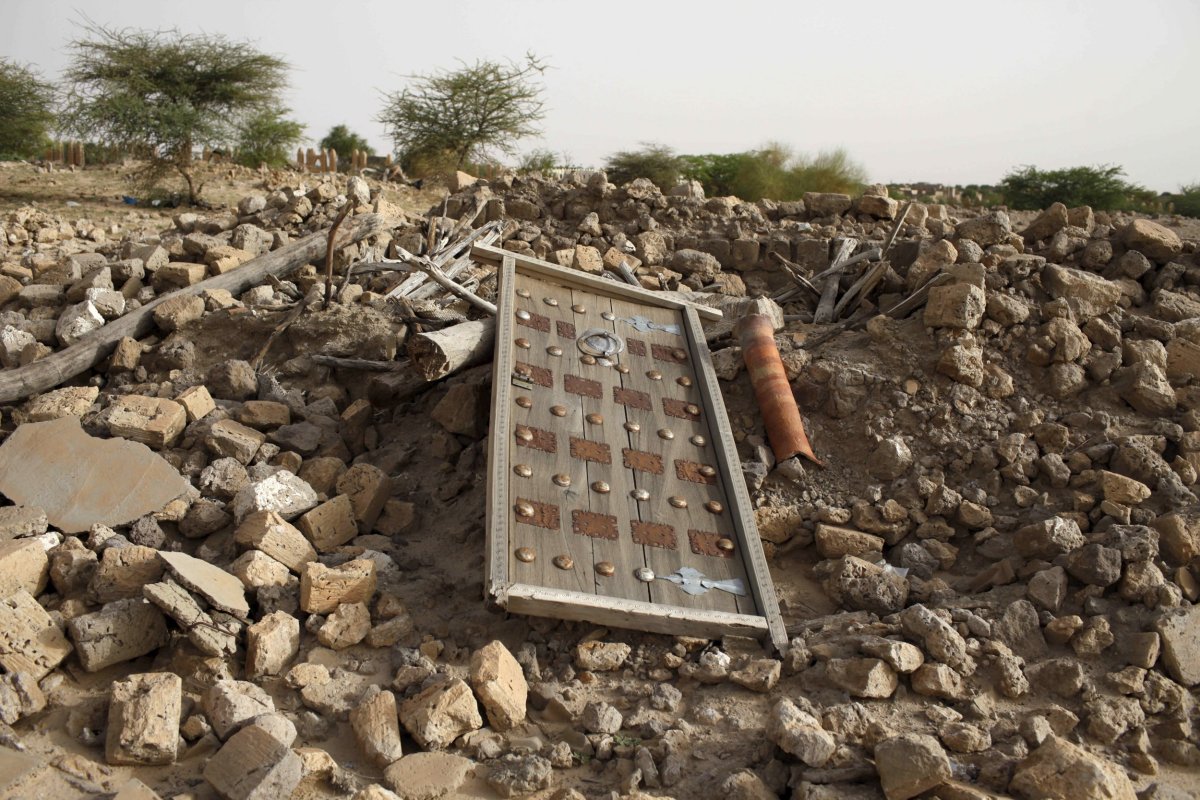
On Tuesday, alleged Malian jihadi leader Ahmad Al-Faqi Al-Mahdi appeared at the International Criminal Court in The Hague for a hearing on whether he should be put on trial for destroying part of the North African country's rich cultural heritage.
Al-Mahdi is accused of overseeing the destruction in 2012 of medieval mausoleums and the Sidi Yahia mosque, which formed part of Timbuktu's World Heritage Site. Al-Mahdi is the first suspect in the ICC's history to potentially face prosecution for attacks against cultural heritage as opposed to direct humanitarian reasons.
The reasoning for Al-Mahdi's alleged acts of cultural destruction? Because the targets were places of Sufi veneration and worship, considered by Islamist extremists to be a blasphemous affront to their view of Islam. Other purges saw the destruction of books and manuscripts that define Timbuktu's place in history as a focus for learning and scholarship.
Why, then, is it important that Al-Mahdi's prosecution should go ahead?
No Past, No Identity
No one is arguing that human life and the basic demands of humanity are not of paramount importance, more so even than cultural monuments. Protection of these is the foundation of international War Crimes legislation.
But the attack on the tombs and shrines of Timbuktu is also a direct attack on cultural identity. Remove identity and you further destroy hope and a sense of belonging. Destroy buildings and historic landmarks—places often associated with great civic pride—and you destroy a community compass, creating instead an unsettled, nervous rootlessness.
The opposite is also true: the Mostar Bridge in Bosnia, a structure of little strategic value, was deliberately targeted and destroyed in 1993. It's reconstruction and reopening in 2004 has become a positive symbol of peace and the power of culture to rebuild.

I have no doubt that the same will be true of Palmyra in Syria, where Daesh—also known as the Islamic State militant group (ISIS)—has destroyed 1,000-year-old Roman architecture and monuments. My friend Professor Maamoun Abdulkarim, Syria's head of antiquities, has vowed to restore the remarkable ruins destroyed by Daesh once the conflict is over.
No Past, No Memory
The desire to edit history, to redact and remove others, physically and through their culture, is nothing new. From Pharaoh Akhenaten's eradication of all of Egypt's traditional gods in the Bronze Age to the more recent retelling of the past by the authorities under Stalin, Hitler or Kim Jong-un, many have sought to shape the past in their mould.
In the heart of England's Westminster Abbey, a rare 14 th century sedilia—seats for the clergy next to the altar—depicts two magnificent life-sized paintings of kings, alongside a further two panels stripped back to the bare oak. The panels once held images of Christian saints. We have no idea who they were, because they were destroyed as "monuments of idolatry" in 1644, one of countless examples of the battles of religious iconoclasm from across the world.
But there is no such thing as a single, linear narrative to history, or a neutral one. Buildings and monuments represent that multiplicity of stories, and are an essential part of a collective memory. They bind us in celebration and remind us of our errors. Without them, we increase the frequency in which we reinvent the wheel and repeat the mistakes of the past.
No Past, No Diversity
Our global landscape has been overlain by different washes of history, resulting in a cultural palimpsest, where language, accent, buildings, food, products, expertize and tradition vary from one place to the next.
These are things to be celebrated and cherished—the antidote to global blandness and homogeneity. I don't want to go to New Delhi to find the same things that I can find in New York, Newcastle or New Zealand. The individual warp and weft of a place makes it unique and interesting—different architecture, traditions, food and attractions. Culture and heritage underpins this.
If one thing should unify us it is tolerance, which is the antithesis of the alleged beliefs held by Al-Mahdi and others like him.
No Past, No Humanity
Our cultural heritage is not a luxury. It defines who we are and where we have come from. It binds us and differentiates us. It underpins our humanity.
Those taking the role of cultural editors, picking and choosing which bits of our past are "correct" and which are unacceptable according to their beliefs, do not do so on my behalf.
John Darlington is the executive director of World Monuments Fund Britain (WMFB), a U.K. charity that champions and breathes new life into extraordinary buildings in Britain and across the globe. WMFB is part of the World Monuments Fund, which has worked on over 600 projects in 90 countries during the last 50 years. The WMF's 2016 Watch program includes a site called the Unnamed Monument, which seeks to highlight the protection of cultural heritage from deliberate damage in areas of political and social instability. John tweets @JohnD_WMFB.
Uncommon Knowledge
Newsweek is committed to challenging conventional wisdom and finding connections in the search for common ground.
Newsweek is committed to challenging conventional wisdom and finding connections in the search for common ground.
About the writer
To read how Newsweek uses AI as a newsroom tool, Click here.








